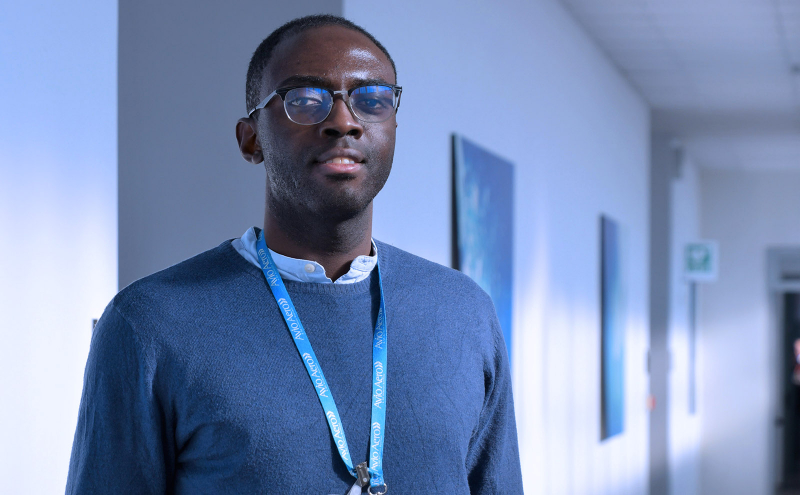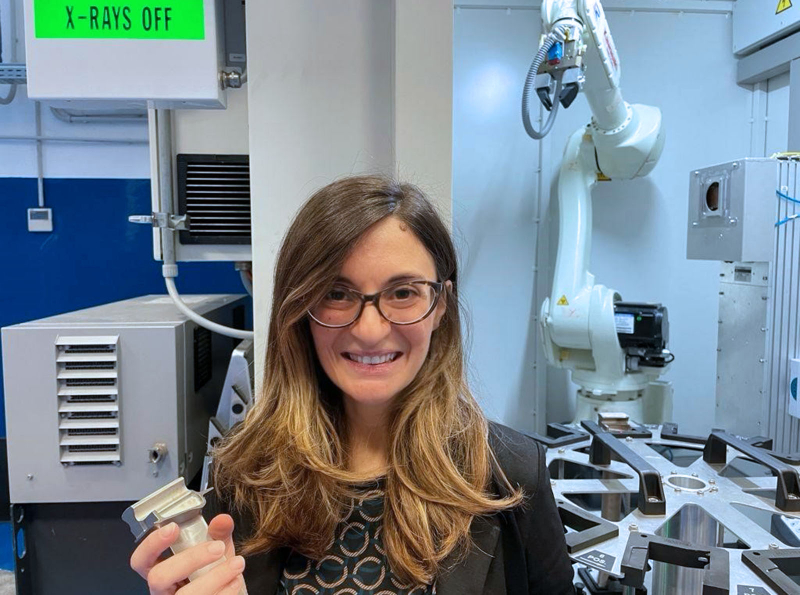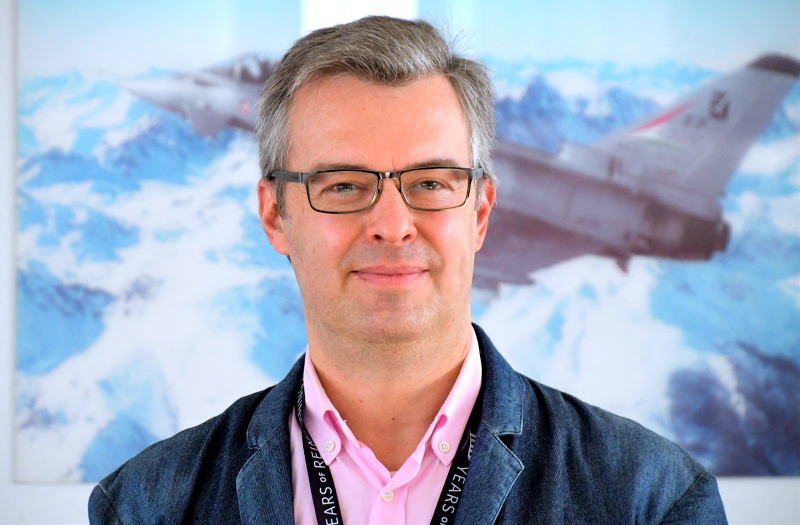Humans
The Industrial side of Engineering
Among the professions and specialties that can be found within Avio Aero, manufacturing engineers are there to act as a bridge between the design and the product.
Feb 2021
Becoming part of Avio Aero Engineering - the flagship of a highly technological and innovative industry, with professionals from all over the world - is a great aspiration for many. This is perhaps because people are attracted by the major collaborations with the best Italian universities, which give rise to the development of new technologies, as well as new higher education courses in subjects that will pave the way for the future of the industry.
There is, however, a lesser known, but absolutely fundamental engineering role, which is that of Manufacturing Engineer. This person is responsible for designing and optimizing a company’s technological and organizational production processes.
The craftsperson who follows all the stages of the production process from design idea to physical object, arriving at the finished product to be delivered to the customer. “The success of a product is not only in its design, but also in its production capacity, in its replicability”, says Francesco Lo Presti, Manufacturing Engineer Manager at Avio Aero. “The challenge is to drop the accuracy of a design into the manufacturing context and to set up efficient processes - in terms of resources, people, and quality standards.”
Francesco has been with the company since 2005, when he was still in his third year at Politecnico di Torino. During his career, he has had the opportunity to experience the factory in all its forms. “It is a mistake to think that there’s a dichotomy between design engineering and manufacturing engineering. I’d say that they’re an extension of one another, linked by continuous information exchange. Manufacturing engineers, in fact, have the privilege of working on board the machine together with the operators, collecting information that, once transferred, translates into improvements to the products themselves. It is experience in the field that confirms a product’s success and feasibility, with sustainable times, processes, and costs”.
The success of a product is not only in its design, but also in its production capacity, in its replicability: the challenge is to drop the accuracy of a design into the manufacturing context and to set up efficient processes - in terms of resources, people, and quality standards
Today, Francesco is in charge of a large group of industrial engineers and combines technological and managerial expertise. “For a manufacturing engineer, technological knowledge is everything. It helps to imagine processes that do not yet exist and to create perspective, and it then stays with you when you take on a managerial role. Transferring know-how to young people is one of the main objectives to ensure the company’s operational continuity”.
More and more young engineers are considering this role at Avio Aero. Luigi Fumagalli is 33 years old and is a Manufacturing Specialist. An Aerospace Engineering graduate, since 2018 he has been working in process simulation at the company. “After finishing university, I thought I would dedicate myself to design, but thanks to a research grant I started to work in process engineering within the Global Supply Chain division. I immediately came to see the factory as a place of learning and exchange. For a recent graduate, seeing all the stages of a manufacturing process means having the keys to understanding how to bring a particular product to market in a way that meets the customer’s needs and is profitable for the company. It’s an opportunity to think about improving tools to enhance everyone’s work”.
Although young, Luigi has an important responsibility: “time to market and customer satisfaction depend on our work. The better we are at analyzing and assessing the industrial processes used in the production of a product, the more we can make forecasts and take action with a view to enhanced efficiency and cost containment”.
I immediately came to see the factory as a place of learning and exchange. For a recent graduate, seeing all the stages of a manufacturing process means having the keys to understanding how to bring a particular product to market
Among a manufacturing engineer’s many skills are those of Anna D’Amato, who works in non-destructive testing (NDT). NDT is a set of investigations, tests, and measurements conducted on an aeronautical product so as not to compromise its integrity and functionality. Anna graduated in chemical engineering after attending French school and works for Avio Aero in Pomigliano, after a stint at FCA and at a German multinational company. Her daily work is extremely technical and, in addition to assisting operators, she drafts reports and provisions in continuous comparison with people holding similar roles outside the company in order to keep up with the latest technologies.
“Industrializing a product requires a continuous search for excellence and the application of the latest technologies. In addition to field experience, a manufacturing engineer can never stop learning and refining their learning to discover new applications in the industry. The task is to share information internally and externally in order to transfer know-how”.
As an expert, Anna finds herself working alongside factory operators who are older and have more years of work experience under their belts than she has, and who are very often men. “Problems can be seen by those who aren’t here every day”, adds Anna, “factories aren’t the same as they used to be and are now driven by expertise. If you show that you are aware of this and are capable, respect will follow, regardless of what sex you are.”
Everything in this profession revolves around technological knowledge and the expertise and ability to build and maintain business knowledge. At Avio Aero, this role is entrusted to two industrial engineers - experts among experts - the CTH (Controlled Title Holder), who is an expert in a specific technological discipline, and the Chief Manufacturing Engineer, with process engineering expertise in the entire technological process of a specific product.
In addition to field experience, a manufacturing engineer can never stop learning and refining their learning to discover new applications in the industry. Is like a tech-evangelism operation on both the internal and external, in order to transfer know-how
Marco Cherubini, today one of the Chief Manufacturing Engineers, has been with Avio Aero since 1995. His intense career has allowed him to gain in-depth knowledge of most of the company's manufacturing sites and he has contributed to defining strategies together with the Leadership Team on several occasions in the company’s history.
“The role of manufacturing engineer is multifaceted because of the breadth and diversity of the technological content that has to be covered”, says Marco. “Avio Aero has created the role that I hold - together with other colleagues in the company who are also expert connoisseurs of the different products - to safeguard internal knowledge. Throughout my professional career, I’ve been able to contribute to designing a high-profile engineering career path with a deep passion for technological content at the core. Our task is to maintain and evolve knowledge, gradually passing it on to the new generations who, in return, contribute the energy and creativity essential to remain constantly at the forefront in a world where innovation trends happen very quickly.
Growing knowledge also means growing young talent and this is one of the main objectives of the department I work in. It is an absolute priority for us and requires a lot of care. A couple of years ago, I had an idea to start a collaboration program with specialized academic institutions. Thanks to my experience working with the universities in Aachen - recognized at a European level and perhaps worldwide as centers of excellence in industrial engineering - we have created projects in which CTH candidates participate. People are thus able to tap into a world of content and tools, but also create a network of high-level professional relationships. Both these opportunities are aimed at acting as a foundation and a stimulus to make the necessary leap”.
Ours is an extraordinary company where the quality of the technological expertise required has few equals in Italy or abroad... for young engineers, knowing that they are among the best in the field of industrial engineering is an opportunity not to be missed
Filling these roles is certainly challenging and requires time to master the disciplines involved. It is a long-term investment that the company makes in people. “Avio Aero is an extraordinary company where the quality of the technological expertise required has few equals in Italy or abroad,” concludes Cherubini. “The complexity of the roles and processes means that we live in continuous learning mode. For young engineers, knowing that they are among the best in the field of industrial engineering is an opportunity not to be missed.”



.jpg)




